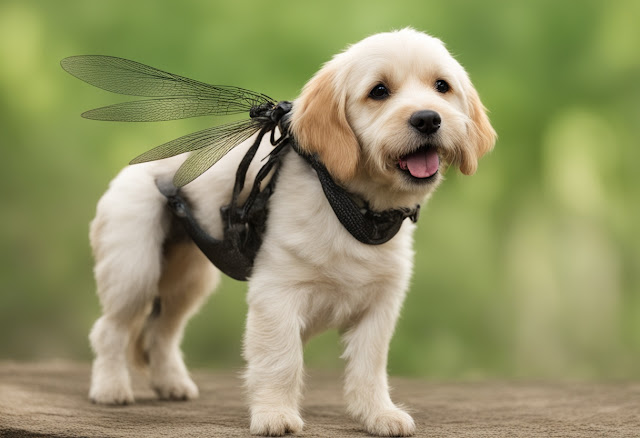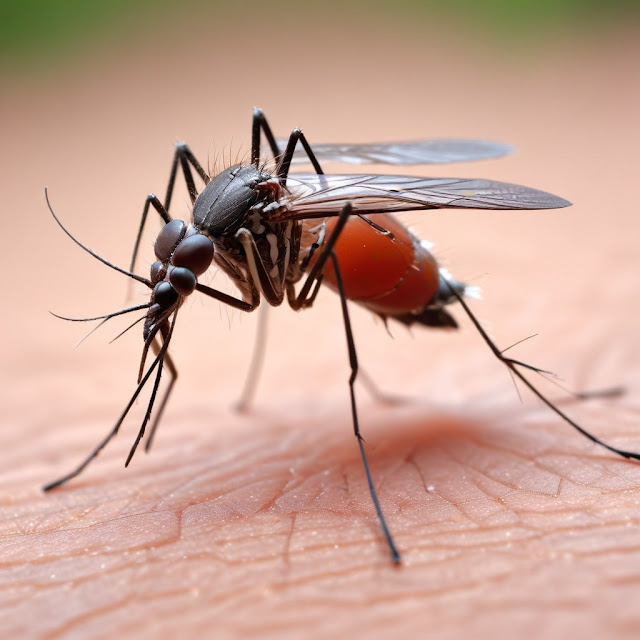Prevention of Black Mosquito Bites in Dogs: Cautions and Precautions
Introduction:
As warmer weather approaches, mosquito activity also increases. While we often associate these pesky insects with itching our skin, they can also pose a danger to our furry companions. The bite of a black mosquito, in particular, can cause pain, irritation, and potentially even more serious health problems in dogs. It's important to understand the risks and take proper precautions to keep your four-legged friends safe and healthy during mosquito season.
Risk of Black Mosquito Bites in Dogs:
Mosquitoes aren't just a nuisance; They can also transmit diseases to people and animals. While some species of mosquitoes prefer to feed on birds or other mammals, others, such as the black mosquito, have a particular affinity for dogs. These mosquitoes can carry a variety of pathogens, including heartworm larvae and West Nile virus, which can be transmitted through dog bites.
When a black mosquito bites a dog, it releases saliva into the bloodstream, which can trigger an allergic reaction and cause unpleasant symptoms such as itching, swelling and burning. In some cases, dogs may experience a severe allergic reaction called mosquito bite hypersensitivity, which is characterized by severe itching and skin inflammation.
If the mosquito also carries heartworm larvae, it can transmit them to the dog through its bite. Once in the dog's body, these larvae travel to the heart and lungs, where they become adult worms. Without prompt treatment, heartworm disease can seriously damage a dog's cardiovascular system and even be fatal.
Precautions and Warnings:
To protect your dog from Black mosquito bites and the dangers associated with them, it is important to take proper precautions:
1. Use mosquito repellent: Apply a dog-safe mosquito repellent or insect repellent to your pet's coat, especially before outdoor activities or walks in mosquito-infested areas. Consult your veterinarian to select a product that is safe and effective for your dog's breed and age.
2. Avoid peak mosquito times: Mosquitoes are most active in the morning and evening. Therefore, try to limit your dog's outdoor activities during these times. If you have to go outside, consider using mosquito nets or fly screens to create a barrier between your dog and these pests.
3. Eliminate standing water: Mosquitoes breed in standing water. Therefore, check your garden regularly for standing water sources, e.g. E.g. bird baths, flower pots or clogged gutters. Eliminating these breeding sites can help reduce the mosquito population in your area.
4. Provide regular veterinary care: Schedule an annual checkup with your veterinarian to ensure your dog has all required vaccinations, including heartworm protection. Your veterinarian may also recommend additional precautions based on your dog's risk factors and lifestyle.
5. Watch for symptoms: Look for signs of a mosquito bite such as excessive scratching, redness, swelling, or hair loss. If you notice any unusual symptoms, contact your veterinarian immediately for proper diagnosis and treatment.
Conclusion:
Black mosquito bites on dogs may seem like a minor inconvenience, but they can have serious consequences for your pet's health and well-being. By understanding the risks and taking proper precautions, you can help protect your beloved companion from the dangers of mosquito-borne diseases. Be vigilant, prioritize precautions, and ask your veterinarian for advice on how to protect your dog during mosquito season.







0 Comments